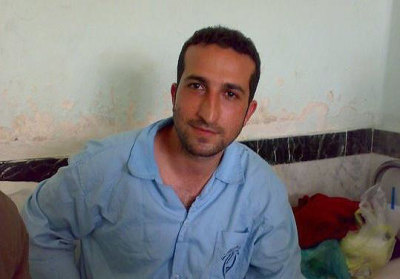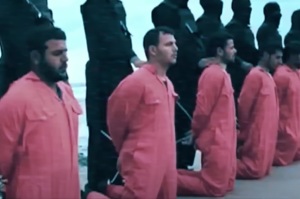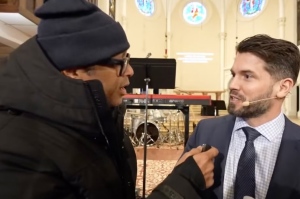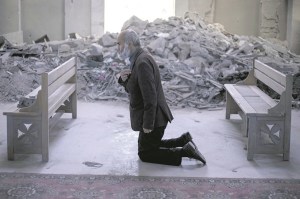Iran’s religious minorities deserve better: Calling for the release of Pastor Youcef Nadarkhani

Around the world, 6.5 billion people—85% of the world’s population—live in countries with high restrictions on religious freedom. Among the world’s worst offenders is Iran, where the government systematically targets Sunni Muslims, Sufis, Baha’is, Christians and Jews with arbitrary detention, harassment and imprisonment for following their faith.
Youcef Nadarkhani, an evangelical pastor and a Muslim convert to Christianity, is one such Iranian who, today, sits in Tehran’s notorious Evin Prison for simply living according to his conscience. That is why, as people of faith and as strong advocates for the freedom of religion or belief abroad, we have partnered to advocate on Pastor Nadarkhani’s behalf—to call for his immediate release and to shed light on the egregious conditions facing religious minorities throughout Iran.
One year ago, armed men raided Pastor Nadarkhani’s home in the middle of the night, beat him, committed violent acts against his family and then hauled him off to jail, where he remains today. The arrest came after the government accused and tried Nadarkhani in 2016 on charges of promoting “Zionist Christianity” and “acting against national security.”
Iranian authorities have long harassed Pastor Nadarkhani: detaining him for “apostasy” and “evangelism” in 2006; arresting him for protesting government policy mandating Qur’anic study for his children, who are Christian, in 2009; and arresting him and his wife, Fatemah Pasandideh, in 2010. After the 2010 arrest, the Court of Appeals in Gilan determined that Pastor Nadarkhani had committed apostasy and sentenced him to execution by hanging. The sentence sparked an international outcry that led to Pastor Nadarkhani’s acquittal in a retrial. This international attention, however, did not bring an end to his harassment, and in fact led to the imprisonment of his legal counsel, Mohammad Ali Dadkhah.
Iran’s treatment of Christians like Youcef Nadarkhani has long merited our attention and condemnation, but it is getting worse. The government increasingly accuses Christians of espionage and disloyalty, despite their formal protection under the constitution and long history in the country.
Last Christmas, more than 150 Christians were arrested in Iran. In May 2019 security forces shut down a church in Tabriz. Muslim converts to Christianity are particularly at risk, and leaders who welcome these men and women often pay the price. Iran’s government believes that by targeting the leadership of its Christian community, it can bully all those whose faith differs from the government-endorsed version of Ja’afri Shi’a Islam into silence.
In targeting Pastor Nadarkhani, Iran’s government betrays both its disdain for religious freedom and its unwillingness to confront its own failures. It would rather use violence and repression against a peaceful community of faith than improve the political, social, and economic conditions of Iran’s diverse and largely tolerant population. It is unjust that Christians in Iran, along with Baha’is, Zoroastrians, Sufis and non-believers, are paying the price for their government’s failures. It is also against international law, specifically Article 18 of the UN Universal Declaration of Human Rights, which declares “everyone has the right to freedom of thought, conscience and religion.” Iran’s 83 million people deserve to have their rights respected regardless of whether the government endorses their religion or beliefs.
The United States must continue to press for Pastor Nadarkhani’s release. That is why we have chosen to use our platforms to jointly advocate for Pastor Nadarkhani through the Defending Freedoms Project (DFP) and the Religious Prisoners of Conscience (RPOC) Project that allow Members of Congress and USCIRF Commissioners, respectively, to stand in solidarity with religious prisoners of conscience, let them know they have not been forgotten, and encourage accountability for their unjust treatment.
Together we call on the U.S. Department of the Treasury to use the Global Magnitsky Act and other relevant sanctions authorities to punish members of the Tehran Revolutionary Court responsible for the pastor’s unjust treatment, including Judge Mashallah Ahmadzadeh. For decades America’s tireless advocacy for religious freedom has earned it the respect of people the world over. At this critical time in US-Iran relations, the world is watching.
Our ongoing advocacy for religious freedom sends an unmistakable signal of the United States’ commitment to all communities of faith and belief that we will continue to be a voice on behalf of their freedom.



























